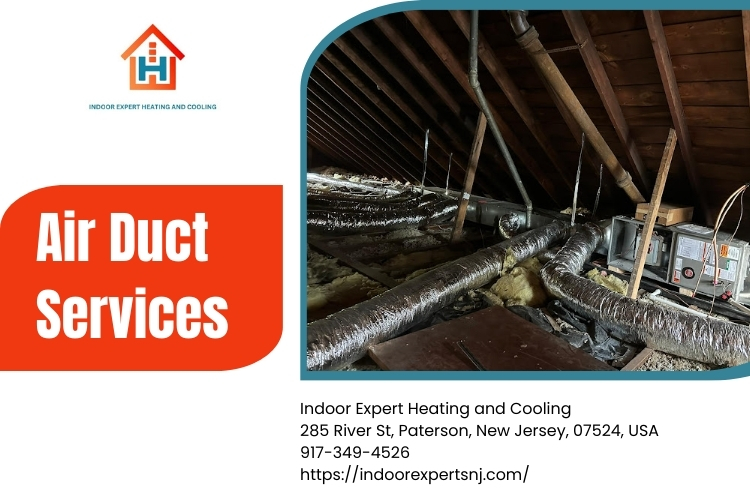" width="560" height="315" frameborder="0" allowfullscreen>
" width="560" height="315" frameborder="0" allowfullscreen>
Water heaters are essential appliances in any household, providing us with hot water for showers, dishwashing, and laundry. However, like all appliances, they can run into issues over time. If you live in Paterson and are experiencing problems with your water heater, you’re not alone. This article aims to provide comprehensive insights and tips for effective water heater repair and maintenance.
Understanding Water Heaters
What is a Water Heater?
A water heater is a device that heats water for domestic use. It comes in various types: tankless, storage tank, heat pump, solar, and more. Each type has its own advantages and drawbacks.
How Does a Water Heater Work?
Most water heaters operate on the principle of heating water either through electric coils or gas burners. Heated water is then stored in a tank until it’s needed. Understanding this basic operation can help diagnose issues when they arise.
Common Types of Water Heaters in Paterson
Tank Water Heaters - These are the most common type found in homes. Tankless Water Heaters - Known for their efficiency as they heat water on demand. Heat Pump Water Heaters - Utilize electricity to move heat from one place to another instead of generating heat directly. Solar Water Heaters - Use solar panels to capture energy from the sun.Top Tips for Water Heater Repair: Keep Your System Running Smoothly in Paterson
Regular maintenance is crucial for extending the life of your water heater. Here are some tips you might find useful:
Regular Inspections: Why They Matter
Conducting regular inspections can help identify problems before they escalate into costly repairs.

- Check the anode rod every 1-2 years. Inspect for leaks around fittings and pipes. Look out for rust or corrosion on the tank exterior.
Flushing Your Water Heater Annually
Flushing your system annually helps remove sediment buildup that can affect efficiency.
How to Flush Your Tank
Turn off the power supply or gas valve. Connect a hose to the drain valve at the bottom of the tank. Open the drain valve and let it run until clear water runs out. Close the valve and refill your tank.Temperature Settings: Finding The Sweet Spot
Setting your thermostat at 120°F (49°C) is usually optimal for both comfort and efficiency while preventing scalding incidents.
Signs You Need Water Heater Repair
Being aware of signs indicating that your water heater may need repair can save you time and money down the line.
Unusual Noises from Your Heater
Banging or popping boiler replacement noises could indicate sediment buildup inside the tank which requires immediate attention.
Discolored or Smelly Water
If you notice rusty or foul-smelling water coming from taps, it’s time to investigate further—this could mean corrosion inside your tank.
Inconsistent Hot Water Supply
If you're constantly running out of hot water earlier than expected, there may be an issue with your heating element or thermostat malfunctioning.
Water Heater Replacement vs. Repair: When to Decide?
Deciding whether to repair or replace your unit often comes down to age, cost, and condition.
Age Matters
Most traditional units last about 10-15 years; if yours is nearing that mark, it may be more economical to replace rather than continually repair it.
Cost Analysis: Is It Worth It?
When considering repairs, calculate how much longer you expect your current unit to last versus investing in a new system upfront.
Boiler Maintenance: Ensuring Efficiency Beyond Just Repairs
If you have a boiler system instead of a traditional water heater, proper maintenance becomes even more critical.
Regular Boiler Inspections Are Key
Just like with other systems, ensure annual inspections by qualified professionals who can spot potential issues before they become serious problems.
What To Look For During Inspections
- Leaks Pressure gauge readings Flue gas emissions
DIY vs Professional Repairs: Weighing Your Options
It’s tempting to tackle repairs yourself; however, knowing when to call a professional can save you from complications down the line.
Common DIY Repairs You Can Handle
Replacing faulty thermostats Flushing sediment buildup Changing anode rodsWhen To Call In Professionals
Complex issues such as electrical faults or gas leaks should always be handled by licensed professionals due to safety concerns involved with these systems.
FAQs About Water Heater Repair in Paterson
What should I do if my hot water is lukewarm?- Check thermostat settings; if everything seems fine but no hot water appears after adjustments, consider inspecting heating elements or calling a technician.
- It's recommended that homeowners flush their tanks at least once per year to maintain efficiency levels.
- Small leaks may be manageable with tape or sealant; however larger leaks usually require professional help as they can indicate serious underlying issues.
- If repairs exceed 50% of replacement costs on an older unit (over ten years), it's often wiser financially to replace rather than continue patching things up indefinitely.
- Yes! Annual inspections ensure safety compliance while maximizing lifespan through timely preventative measures taken by experts familiarized with local regulations.
- Most installations take between 2-6 hours depending on existing plumbing conditions & chosen model type being set up effectively without disrupting daily routines too much!
Conclusion
Maintaining and repairing your water heater doesn’t have to be daunting if you know what steps to take! Following these top tips will keep your system running smoothly in Paterson while increasing its lifespan significantly over time! Whether you're dealing with minor repairs yourself or calling upon professionals when necessary—staying informed will make all the difference! So grab those tools (or phone numbers) today because prevention truly goes hand-in-hand with efficient management practices!
Contact Us
Indoor Expert Heating and Cooling
Address: 285 River St, Paterson, New Jersey, 07524, USA
Phone: 917-349-4526